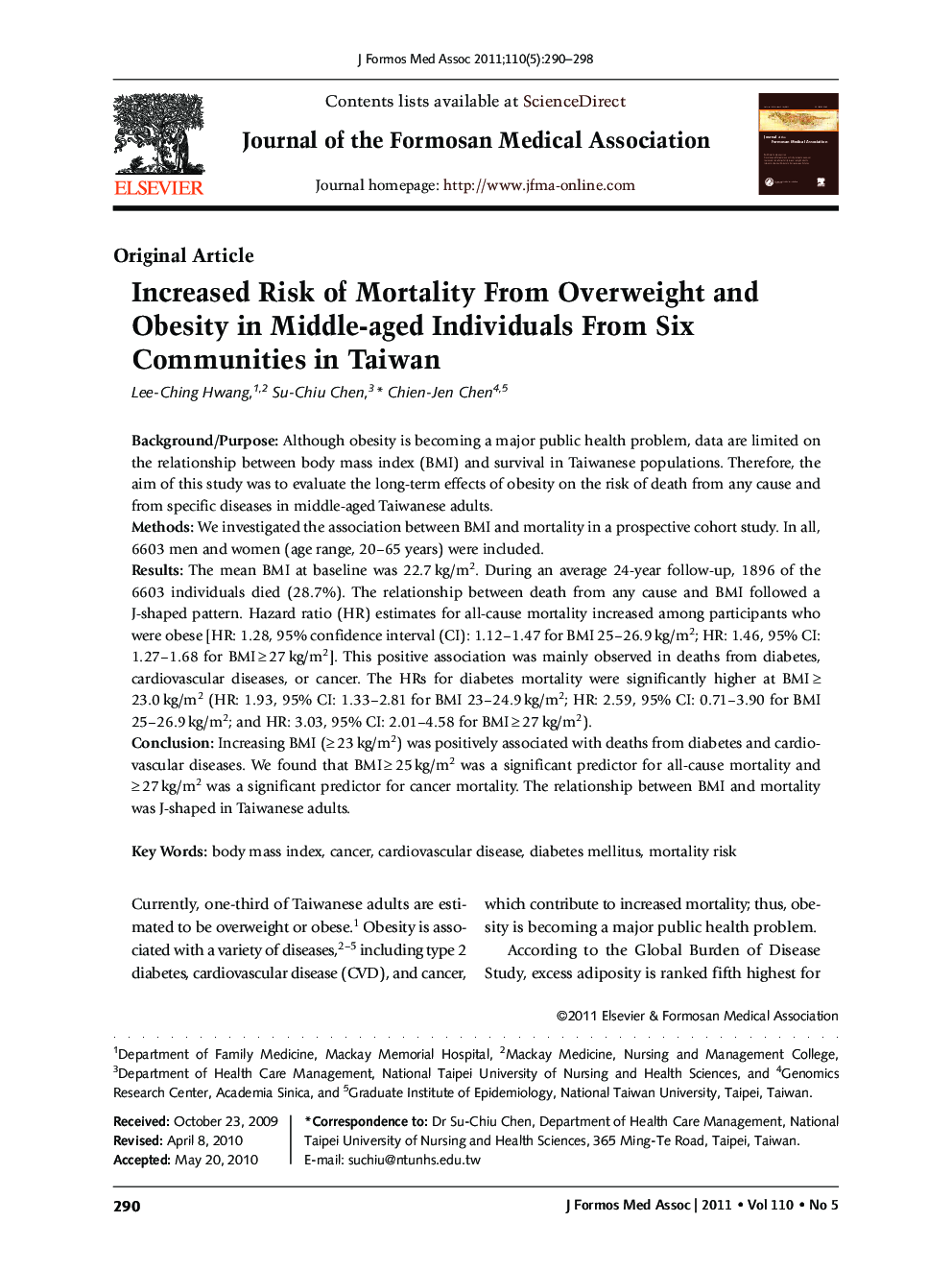| Article ID | Journal | Published Year | Pages | File Type |
|---|---|---|---|---|
| 3479609 | Journal of the Formosan Medical Association | 2011 | 9 Pages |
Background/PurposeAlthough obesity is becoming a major public health problem, data are limited on the relationship between body mass index (BMI) and survival in Taiwanese populations. Therefore, the aim of this study was to evaluate the long-term effects of obesity on the risk of death from any cause and from specific diseases in middle-aged Taiwanese adults.MethodsWe investigated the association between BMI and mortality in a prospective cohort study. In all, 6603 men and women (age range, 20–65 years) were included.ResultsThe mean BMI at baseline was 22.7 kg/m2. During an average 24-year follow-up, 1896 of the 6603 individuals died (28.7%). The relationship between death from any cause and BMI followed a J-shaped pattern. Hazard ratio (HR) estimates for all-cause mortality increased among participants who were obese [HR: 1.28, 95% confidence interval (CI): 1.12–1.47 for BMI 25–26.9 kg/m2; HR: 1.46, 95% CI: 1.27–1.68 for BMI ≥ 27 kg/m2]. This positive association was mainly observed in deaths from diabetes, cardiovascular diseases, or cancer. The HRs for diabetes mortality were significantly higher at BMI ≥ 23.0 kg/m2 (HR: 1.93, 95% CI: 1.33–2.81 for BMI 23–24.9 kg/m2; HR: 2.59, 95% CI: 0.71–3.90 for BMI 25–26.9 kg/m2; and HR: 3.03, 95% CI: 2.01–4.58 for BMI ≥ 27 kg/m2).ConclusionIncreasing BMI (≥ 23 kg/m2) was positively associated with deaths from diabetes and cardiovascular diseases. We found that BMI ≥ 25 kg/m2 was a significant predictor for all-cause mortality and ≥ 27 kg/m2 was a significant predictor for cancer mortality. The relationship between BMI and mortality was J-shaped in Taiwanese adults.
